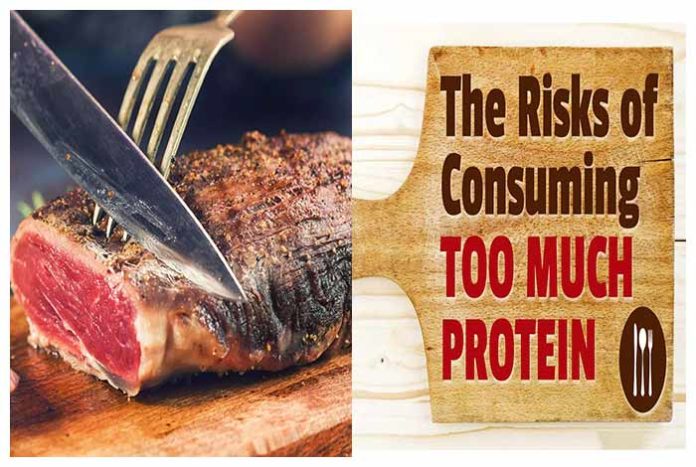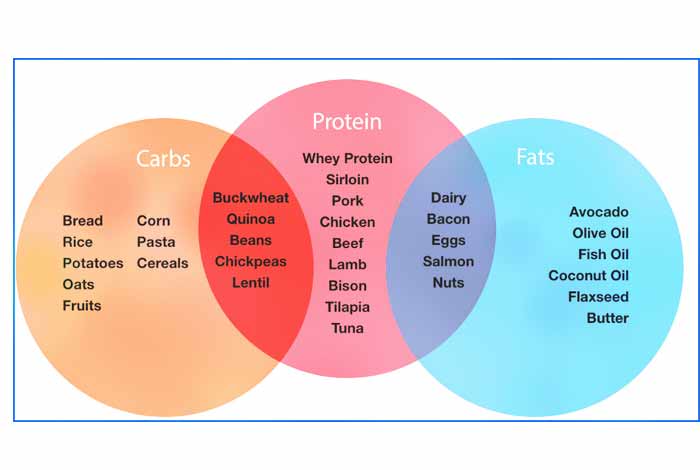
When it is about eating healthy, most people tout for meat and animal sources of protein. But, talking specifically about protein, we need to understand how much is too much and whether having a lot of protein can be detrimental to your health?
According to Canada Food Guide, protein is healthy, but only as long as it is taken in the recommended limits of 1-2 servings of meat and other products for children below the age of 13, and 2-3 servings for people over 14 years of age. Each serving has 75 gm of protein or 2½ ounces.
We already know that protein is the building block, along with carbs and fat, for the cells of the body and is essential for the biochemical functions within the body.[1] It is also required for repairing the skin, nails, hair and muscle tissues. It is also responsible for hormone production.
Recommendations for Intake of Protein
Although the Canada Food Guide has recommended the safe limits, yet there continues a tussle as to how the protein requirements can be estimated as most experts fail to reach a consensus.
The current recommendations in Canada are 10-35% of daily calorie intake or 0.8 kg or 800 gm. But, this method underestimates the requirement of protein because of limitation of the technique used.
A 2007 study issued in the American Journal of Clinical Nutrition, found that the current protein requirement recommendations is underestimated by 30%. Thus, this is possibly never-ending debatable topic and protein research will keep bringing newer facts to us.
Growing number of fad diet like the Atkins and Paleo diet continue to stress on meat, but with all this, one wonders how all that protein affects the health of the body.
A highly active person like athletes requires about 2 gm of protein per kg of body weight, depending on the kind of activity such people are involved in. Having protein, a little above this value won’t do much harm, but if you are having too much of protein, so that there is no space for other foods, then it could be harmful.
Too much of consumption of protein, particularly from foods having high content of animal fat like cheese, meat and so on, could up your chances of having chronic disease and may cause issues related to the health of bone and kidney.
So, you should not consume protein above the levels as recommended as it won’t do any good to your body. Further, it could cause extra load on the organs like kidneys for its metabolization. Also, other important foods like fruits, vegetables, whole grains, seeds and nuts could get displaced.
Include Protein with Other Macronutrients
Any diet that gives preference to one macronutrient above the others is not good. This is because there would be dietary imbalance and you will not get all the nutrients required by the body.

If you want to add protein in your diet, consume more of plant-based proteins. Most of us rely on animal sources for protein, but we must be aware that plant -based protein are required for optimum health and can be obtained easily.
Replace meat with tofu. You can make it in surprising ways by having a look at some tofu recipes online.
Also, you should have protein in all your meals. When you include protein in you meals, it induces a feeling of fullness and promotes satiety, which is important in maintaining adequate weight. But, do not load up on protein in a single meal.
Dietary protein sources like meat, fish, eggs and nuts are more effective than protein powder for growth of muscles and recovery.
So, choose wisely!










